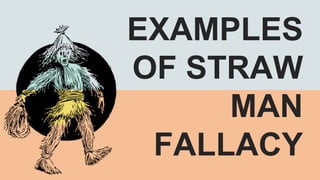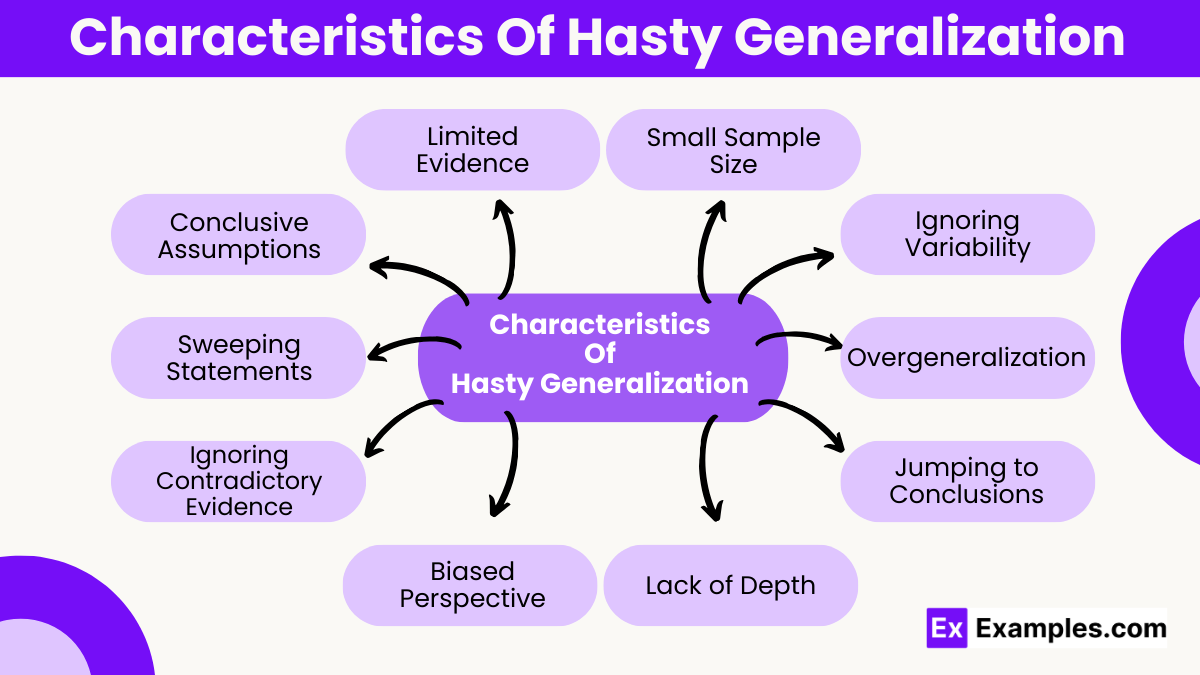Having addressed how logos should reign supreme over ethos and pathos in logical argument, and how there are both formal and informal fallacies, we began to give some information about the most common logical fallacies, particularly the ad hominem, poisoning of the well, and red herring kinds. That leads us to consider a similar kind of informal fallacy called "the straw man fallacy."
Straw Men Fallacy
"A straw man fallacy is a logical fallacy that occurs when someone misrepresents an opponent's argument in order to make their own argument seem stronger. The term comes from the idea that a scarecrow, or straw man, is easy to defeat because it's weak." (AI Overview)
The "straw man" is a misrepresentation of the actual belief or idea of an opponent in debate. We see this once again quite often in political debates. It often is the result of "charging consequences" upon an opponent for his belief. It says "my opponent believes X because it is a consequence of his belief." This is often said even when the opponent denies believing those presumed consequences. It is like we have seen politicians say of senator X that he is against old people because he votes for some change in social security. We see it in many Christian debates over bible doctrine, such as when Arminians say such things against Calvinists as 1) "their God is the Devil" or 2) "God enjoys sending some people to Hell," etc. Calvinists also build straw men when they say such things against Arminians such as 1) "Arminians believe they are saved by their works and do not believe in salvation by grace," or 2) "Arminians don't believe in the sovereignty of God," etc. It is better to say in debate "my opponent's belief (or argument) has these consequences, although he denies believing them."
A straw man fallacy involves the deliberate distortion of another person's argument or beliefs. By oversimplifying or exaggerating it, the other party creates an easy to refute argument and then attacks it rather than the actual argument. It is another means of distracting attention away from the actual argument.
When people commit the straw man fallacy they don’t necessarily do it on purpose. It might be due to a genuine misunderstanding of the other person’s argument. It may be due to people reading more into the argument or idea being promoted than the argument actually entails.
In one Internet article on the subject (See here) we have these good words (emphasis mine):
"What are different types of straw man fallacy?
Straw man fallacy can take different forms and may involve:
Taking an opponent’s words out of context (i.e., choosing words that misrepresent their intention)
Exaggerating or oversimplifying an opponent’s argument and then attacking this distorted version
Fabricating claims that the opponent never actually made
Changing small but important details in the opponent’s original argument."
The same source says:
"Regardless of their form, straw man fallacies share this general structure:
Person A states position X.
Person B describes position Y, a distorted version of position X.
Person B argues against Y instead of X, claiming that original position X has been refuted."
We also see this fallacy used by advertisers when they distort the products of their competitors saying "Brand X" is something that it is not.
Jumping to Conclusions
(or Hasty Generalization)
"Jumping to conclusions is a logical fallacy that occurs when someone makes a decision or forms an opinion without enough evidence. It's also known as the hasty generalization fallacy or the jumping conclusion bias." (AI)
The above chart shows how and why people jump to conclusions.
Another good source says that jumping to conclusions is also known as "hasty conclusion, hasty decision, leaping to conclusions, specificity." (See here) It is also what is called an "inferential leap." It is also clearly a case of misinterpretation. It is a case of drawing conclusions without taking the time to evaluate the evidence or reason through the argument.
Said another source (See here - emphasis mine):
"Jumping to conclusions is a phenomenon where people reach a conclusion prematurely, on the basis of insufficient information. For example, a person jumping to conclusions might assume that someone they just met is angry at them, simply because that person wasn’t smiling at them while they talked, even though there are many alternative explanations for that behavior."
Assuming that smokers have a high life expectancy because one's uncle was a lifelong smoker who lived into his nineties is an example of hasty generalization or jumping to conclusions.
I have had to be careful in this regard when I say something about "Primitive Baptists" for I have seen where not all who go by that name believe or practice the same things. Even though what I say about them is true in most instances, it is not true in every instance. This was clear to me when brother Mann called my attention to a large group of "Primitive Baptists" in the Eastern District Association. Since then I try to be careful and now say "Hardshell" Primitive Baptists and affirm that not all who called themselves "Primitive Baptists" are of the Hardshell variety. New evidence made me do this.
On the other hand, without a doubt, many Hardshells who have visited this blog and made comments or sent me a private e-mail have often jumped to conclusions about my writing against Hardshellism. In these instances it is done mostly because they have a bias against seeing anything commendable in my writings against their errors. They have jumped to the conclusion that I am doing this out of spite, because I am bitter about how I was treated when I was a Hardshell, etc. None of this is true, however. I write in order to try to help them see their errors, to correct them, and to help them see the way of the Lord more perfectly. I also write against their errors so that those coming in contact with Hardshells will not get snared in their cult thinking.


No comments:
Post a Comment